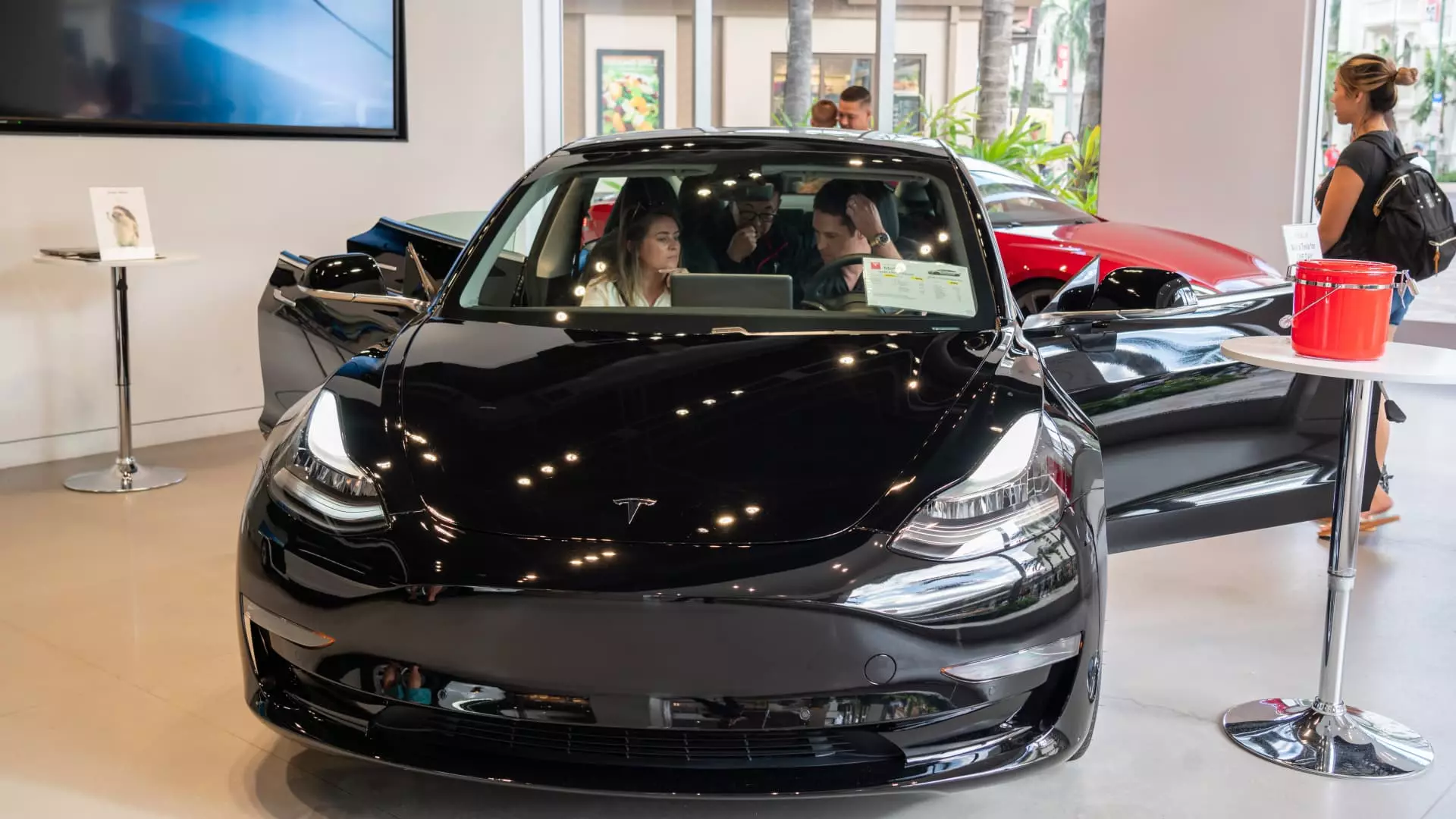When it comes to electric vehicle (EV) adoption, Hawaii has emerged as a surprising leader in the United States. Despite the slower uptake by consumers in other states, Hawaii has seen a significant growth in EV adoption, ranking fifth in overall EV adoption at 11.9% of new retail vehicles sold through February, according to J.D. Power. Additionally, Hawaii ranks third in J.D. Power’s “EV Adoption Score” with a score of 33.8, trailing behind only California and Washington.
Several factors contribute to Hawaii’s success in EV adoption. High fuel costs, availability of renewable energy for charging, and the cultural mindset of stewardship towards the land all play a crucial role in influencing consumers to opt for EVs. According to Ivan Drury, director of insights at auto research firm Edmunds, Hawaii’s unique cultural values, such as the concept of ‘Aina’ which signifies pride for the land, have created a sense of responsibility among residents towards embracing sustainable transportation options like EVs.
Moreover, the popularity of hybrid models in the state has paved the way for a smoother transition to EVs, with hybrid models accounting for 19% of vehicles in 2023. Unlike mainland states, road trip concerns, which often deter buyers from choosing EVs, are minimal in Hawaii due to its island geography. The limited road network, especially on the Big Island, eliminates the need for long-distance travel, making EV ownership a convenient and practical choice for residents.
In addition to cultural and geographical factors, the high gasoline prices in Hawaii serve as another driving force behind the growing adoption of EVs. With an average price of $4.72 per gallon, Hawaii ranks second-highest in the U.S., making EVs a cost-effective alternative for consumers seeking to reduce their fuel expenses. The top-selling EVs in the state include the Tesla Model Y, Tesla Model 3, and Ford F-150 Lightning, reflecting a diverse range of options catering to various consumer preferences.
Despite the progress in EV adoption, challenges such as lack of charging infrastructure, affordability, and limited vehicle choices continue to hinder widespread adoption in Hawaii. While consumer interest in EVs is on the rise, with models like Kia’s new EV9 SUV generating significant attention, EVs still account for only about 2% of total vehicle sales in the state. The affordability of EVs remains a concern, with the average cost of purchasing an EV from a franchised dealer in Hawaii exceeding $62,600 this year, although it has decreased from the previous year.
Looking ahead, Hawaii’s EV market is poised for further growth, driven by factors such as evolving consumer preferences, environmental awareness, and technological advancements in the EV industry. While the state continues to face challenges similar to those on the U.S. mainland, including the need for more charging infrastructure and affordable EV options, the cultural shift towards sustainable living and the availability of renewable energy sources offer promising opportunities for continued EV adoption.
Hawaii’s transition towards electric vehicles represents a significant step towards achieving a greener and more sustainable future for the state. By addressing the challenges and leveraging the unique advantages that Hawaii offers, such as its cultural values, environmental consciousness, and high fuel costs, the state can further accelerate the adoption of EVs and lead the way in transitioning towards a cleaner transportation ecosystem.

